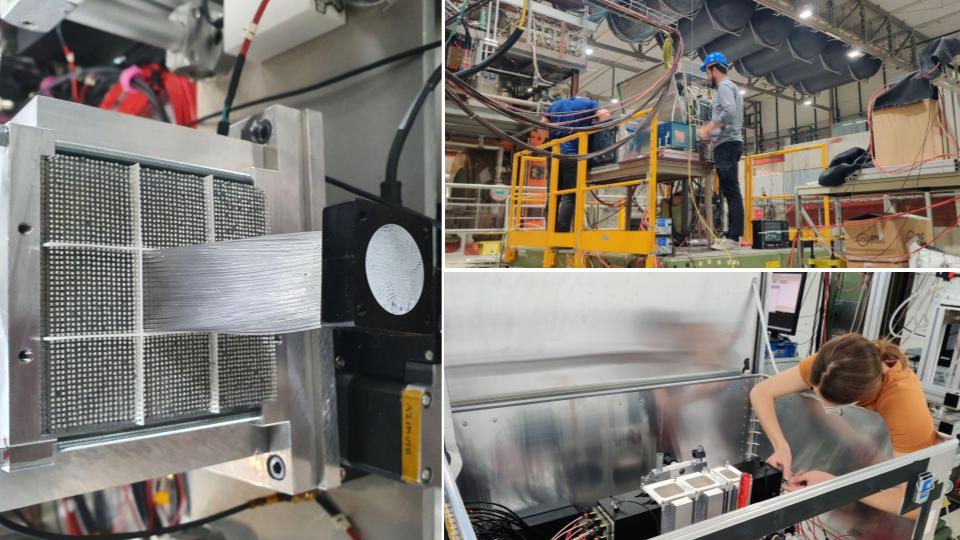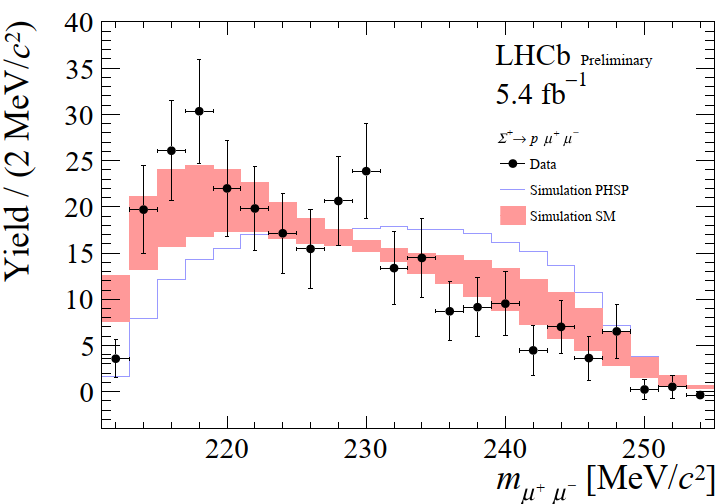-
Measurement of the effective leptonic weak mixing angle

Today, at the 42nd International Conference on High Energy Physics, ICHEP, Prague, Czech Republic, the LHCb collaboration reported a measurement of the effective leptonic weak mixing angle, sin2θleff, the parameter which is involved in the unification of the electromagnetic and weak forces. The result was obtained from the analysis of the forward-backward asymmetry in the…
-
Improved determination of the CKM angle γ

Today, at the 42nd International Conference on High Energy Physics, ICHEP, Prague, Czech Republic, the LHCb collaboration reported an improved determination of the CKM angle γ with a precision better than 3°. This result was obtained by a simultaneous combination of measurements sensitive to the CP-violating angle γ of the Cabibbo-Kobayashi-Maskawa (CKM) unitarity triangle, to…
-
Probing the nature of the mysterious particle χc1(3872)

Today, at a CERN seminar, the LHCb collaboration reported precise measurements of the properties of the mysterious particle χc1(3872), also known as the X(3872), using radiative decays χc1(3872)→ψ(2S)γ and χc1(3872)→J/ψγ. Since its discovery 20 years ago physicists have been fascinated by this particle trying to understand if it is a conventional charmonium state composed of…
-
ECAL and RICH sub-detector enhancements approved for construction

The LHCb experiment will upgrade the inner part of the Electromagnetic Calorimeter and the electronics of the Ring Imaging Cherenkov detectors in the next LHC Long Shutdown (LS3). On July 5, 2022, protons collided again at LHCb after a 3.5 year break known as Long Shutdown 2 (LS2) marking the start of the LHC Run…

